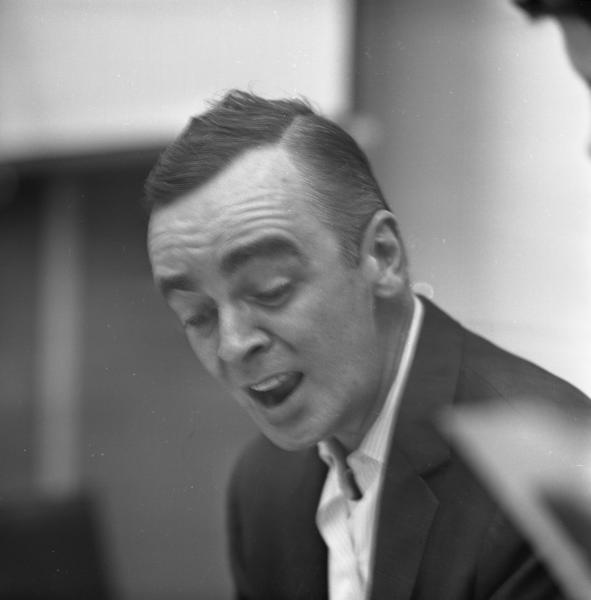Ralph Burns: pianist, composer, arranger
Ralph Jose P. Burns: born June 29, 1922 in Newton, MA; died Nov. 21, 2001 in Los Angeles
Of the dozens of fine composers and arrangers to come out of New England, none was ever more accomplished or more prolific than Ralph Burns, who left indelible marks on music in America from coast to coast and not only in the jazz idiom.
While with Woody Herman in the 1940s, Burns contributed hits such as “Bijou” and “Northwest Passage” to the band’s book. He was the anchor of a composing/arranging staff unsurpassed in big band history. Among his colleagues were Nat Pierce, Neal Hefti, Shorty Rogers, Red Norvo, Bill Harris, Terry Gibbs, Jimmy Giuffre and even Igor Stravinsky, who was inspired to compose the Ebony Concerto for Herman after hearing some of the works Burns had done for the band. Burns was impressionable himself, and often stayed up all night listening to records of Stravinsky, Duke Ellington and Charlie Parker.
According to British jazz journalist Steve Voce, Burns was befriended by Alexis Haieff, Stravinsky’s protégé, and he studied composition and orchestration with him. It was to serve him well, for Burns went on to be not only a jazz figure to rank with Duke Ellington, Billy Strayhorn, Gerry Mulligan and Gil Evans, but also to become one of the finest orchestrators of popular music.
Burns kept busy with writing, never short of work throughout the better part of 60 years, manuscripts for a projected musical on his desk when he died. His skills were directed at chamber composition, jazz writing and at enhancing those who performed the great American songbook. He was matchless, and it is certain that the timeless nature of his work will ensure its survival along with the best of Ellington and Strayhorn, whom he so much admired.
Outside of his legendary work with the Woody Herman band, Burns played a major role in the musical scores for some of the biggest hits on Broadway, including Chicago; No, No, Nanette; and Sweet Charity. His Hollywood work included Cabaret and a collaboration with Jule Styne and Barbra Streisand on Funny Girl. He received Oscars for Cabaret in 1973 and All That Jazz in 1980. He won an Emmy in 1980 for Baryshnikov on Broadway, and a Tony in 1999 for Fosse. He won a second Tony and a Drama Desk Award posthumously in 2002 for a revival of Thoroughly Modern Millie.
Ralph’s masterpiece was “Summer Sequence,” a 20-minute suite introduced to the world by Herman at Carnegie Hall on March 25, 1946. “That was something I wish I could remember more,” said Burns years later. “It was a thrilling night. The band was at its absolute peak. We thought nothing of it at the time, like a baseball team that went on to the World Series.”
—Brent Banulis

Ralph Burns (Photo by Burt Goldblatt)
